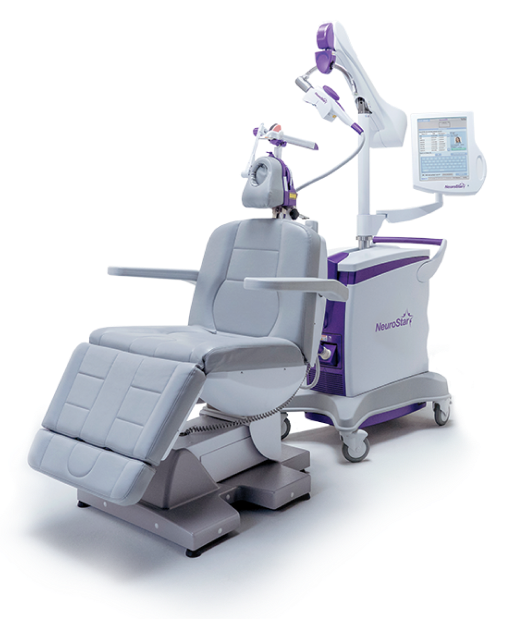TMS: A Non-Medication Alternative to Treating Depression

TMS, or Transcranial Magnetic Stimulation, is a safe, non-invasive procedure to treat depression when medications have not worked. The treatment uses magnetic fields to stimulate nerve cells in the brain. It is a safe and effective treatment for major depressive disorder (MDD), and has been shown to be effective in people who have not responded to other treatments, such as medication and therapy. In fact, 83% of patients completing treatment experienced measurable depression relief, and 62% experienced full remission of their depression symptoms.
TMS works by creating a magnetic field that passes through the skull and into the brain, stimulating the left prefrontal cortex, a part of the brain that is involved in mood regulation. When this area of the brain is stimulated, it releases neurotransmitters, such as serotonin and dopamine, which can help to improve mood and reduce symptoms of depression. The magnetic field causes an electrical current to flow in the brain, which can positively change the activity of nerve cells.
Receiving a treatment of TMS is most commonly experienced as a light tapping on your head. It is generally well-tolerated, with few side effects. The most common side effect is headache or scalp tingling at the treatment site, both of which usually goes away on their own.
TMS is typically administered as a series of treatments, usually five days a week for several weeks. The number of treatments needed will vary depending on the condition being treated.
TMS is a relatively short procedure, lasting only 20 minutes. A full course of treatments occurs 5 days per week across 6 weeks, for a total of 36 treatments. The sessions are typically done five days a week for four to six weeks.
TMS is a safe and effective treatment for MDD, and it can be a valuable option for people who have not responded to other treatments. If you are struggling with depression, talk to your doctor about whether TMS might be right for you.
Benefits of TMS
-
It is a non-invasive procedure, meaning that there is no surgery or incisions involved.
-
It is generally well-tolerated, with few side effects.
-
It is effective in treating Major Depressive Disorder (MDD), even in people who have not responded to other treatments.
-
It is a short procedure. Each procedure lasts 20 minutes and a full course of treatments occurs 5 days per week for 6 weeks.
-
It can be done on an outpatient basis, meaning that you do not need to stay in the hospital. You remain alert at all times during the procedure and no anesthesia is used.
-
It is a covered benefit by many insurance plans.
If you are interested in considering TMS at Aster Mental Health, the first step is to schedule an appointment to consult a doctor about whether TMS is right for you. Once it has been established that you are a viable candidate for TMS, our team will contact your insurance company to determine your coverage. It is usually one week between the time of the initial consult to the time you begin your TMS treatment.
